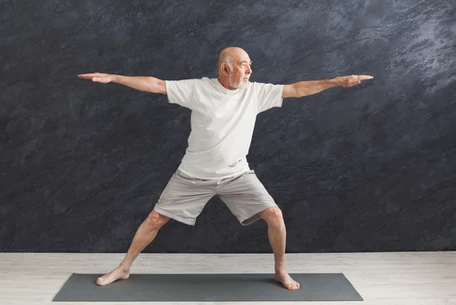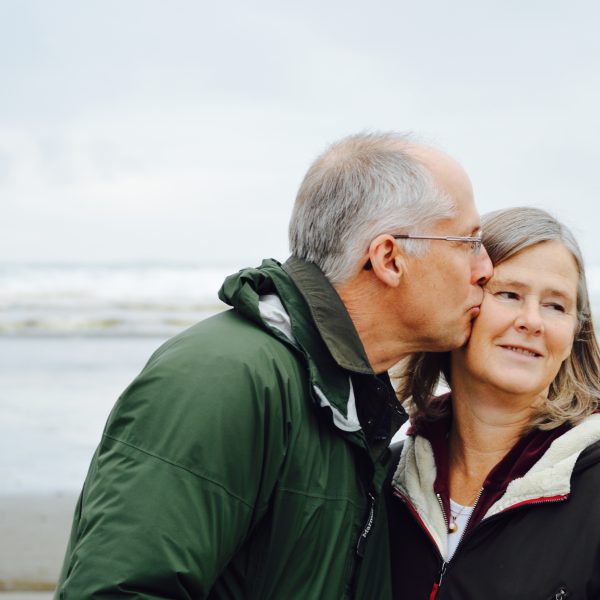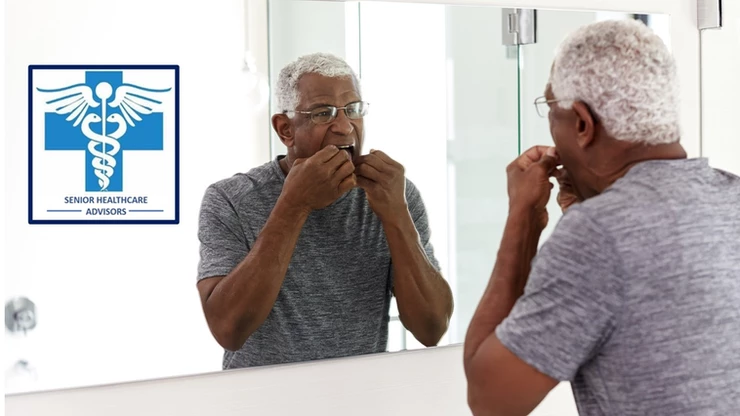Health News from Senior Healthcare Advisors
Everyday activities can become increasingly more difficult as we age. For many older adults, good personal hygiene can be hindered by mobility issues or a sheer lack of energy. Dementia, isolation, depression, medication side effects, or fear of falling can all be reasons for seniors to begin to neglect their personal hygiene and grooming.
Causes of Declining Personal Hygiene in the Elderly
Good personal hygiene habits as an afterthought can have serious consequences that affect a senior’s health. It is particularly harmful for seniors to have poor personal hygiene, as it can lead to a plethora of diseases and infections, as well as exacerbate any pre-existing conditions they may have. This is especially true for seniors who share living spaces with other seniors in assisted living facilities, nursing homes, rehab centers, and such.
- Dampened Senses come about with age. Many seniors witness a decline in their hearing, sight, taste, touch, and smell as they age causing them to sometimes be unaware of their physical health. You really can’t blame them! If you are a senior’s caretaker, stay on the lookout for signs like soiled clothes, body odor, and bad breath. These may be cues that the senior you are caring for is neglecting their health, either on purpose, or they are unaware that their senses are diminished causing a decline in personal hygiene.
- Dementia doesn’t happen to every senior, however, with dementia there is often a decline in cognitive abilities. Depending on the severity and type of the dementia, memory is commonly affected, thereby causing them to ‘forget’ to practice personal hygiene. Early detection and finding creative ways for seniors to practice good personal hygiene can tremendously enhance their quality of life.
- Authority: Most people don’t like asking for help, so it comes as no surprise that many seniors may feel shame when asking someone to help them with such a private matter as personal hygiene. It could very well be a feeling of a loss of control in their lives and vulnerability. Some seniors may feel anger or frustration if help is enforced or even just offered to them. The best way to handle this is by taking baby steps. Start with gentle reminders, like washing their hands before meals or after using the restroom. You can also make things much easier on them by providing assistive devices, such as handrails, adult diapers, or a raised toilet seat. Calmly explain the consequences of poor hygiene and that their health is at stake, but don’t force it. They will eventually come around and realize it is in their best interest to accept a bit of a helping hand. It comes down to accepting the limitations of aging.
- Depression affects people of all ages and makes them feel like their body is shutting down. Even the mundane activities of daily living like brushing their teeth can feel like a chore, causing many seniors to start to neglect their personal hygiene standards. Very often, clinical depression goes undiagnosed in the elderly because the symptoms of depression, such as insomnia, lethargy, and confusion get attributed to age. It can also be a side effect of one or a combination of their medications. Look at the family history and ask them if they are feeling down. You may be surprised how badly they have wanted to talk about their feelings but didn’t know how. Talk to a doctor if you feel like someone you know is suffering from depression.

Hygiene and health go hand in hand. If you or someone you love is struggling to maintain a daily hygiene routine, here are some helpful tips:
- Identify the issues. Recognizing the root cause of why your loved one is neglecting their personal hygiene is the first step towards fixing the problem. Is it because of mobility issues? Maybe they are feeling too embarrassed to ask for help? Whatever the reason is for a lack of hygiene, getting to the bottom of it and talking about it makes finding potential solutions for helping them to stay healthy and clean possible.
- Establish a routine. Establishing a daily personal hygiene routine can help your loved one to form the habit of bathing/showering, brushing their teeth, combing their hair, etc. Help by making it just an ordinary part of their day, maintain good personal hygiene rather than a big chore. It is understandable why they may feel it is a chore. Seniors with chronic pain and weakness can get very winded just getting in and out of a shower or bathtub. Shower chairs and safety bars are incredibly important. Try putting on their favorite music, and having comfortable clothes waiting for them as soon as they get out. Throw a towel in the dryer so that it is warm for them when they step out of the shower.Ensure a safe bathroom. The fear of slipping or falling can often be the reason seniors avoid using a shower or bath altogether. Install a raised toilet seat, safety bars, use non-slip attire, and anything else you can think of to prevent falling. Falling can be a life threatening ordeal for seniors. Often broken hips and other catastrophes can be prevented with good fall risk prevention techniques.
- Purchase helpful hygiene aids. Many of these aids can be bought with your OTC Medicare Card. There are many devices and other items that are especially designed to remedy elderly hygiene issues by making it easier for them to take care of their own personal grooming. Long-handled shower brushes, elongated razors, and toenail clippers can all make managing personal hygiene easier and safer.
- Protect your loved one’s modesty. The bathroom is supposed to be the one place you have complete privacy. So, some seniors may feel it’s degrading to have someone else, especially someone they don’t know, help them in the shower. Whenever you can, do your best in protecting your loved one’s modesty. Let them hold a towel over their private parts while you help wash other parts of their body. Let them help you to wash their gential area. It is a tough call because it is very important that you inspect those areas for cleanliness, because urine and fecal matter can cause skin breakdown and infection. They may tell you they have cleaned it themselves, because they are embarrassed, but if you communicate to them how important it is to make sure, and that you understand their feelings you can get past the embarrassment and add to the quality of their life. Let them know they are not alone and that you would most likely feel the same way yourself.
- Consider hiring a professional caregiver, even if it is just for activities of daily living (ADLs). Professional caregivers can provide personal hygiene services for your loved one, and your loved one may prefer having one because it is less that you have to do. Sometimes, seniors don’t want a stranger bathing them or seeing them without clothes, but they often get over those feelings once they see how much better they feel.

Personal Hygiene Practices for Seniors
- Keeping your nails trimmed is a good way to eliminate bacteria that lives under your nail beds. Keeping your toenails and fingernails clean helps to prevent infections.
- Drink enough water. Staying hydrated is a practice in good hygiene. Older adults are prone to dehydration, so make sure you are drinking enough water.
- Get enough sleep. Seniors commonly have difficulty falling asleep and/or staying asleep. Lack of sleep can cause depression, high blood pressure, and compromise your immune system.
- Wash your hands several times per day. Keep them in warm water for at least 20 seconds to avoid spreading germs.
- Change your clothes on a daily basis. This practice will help to prevent skin infections. Believe it or not, clothes capture bacteria.
Click here for more information on Fall Prevention Strategies:
https://seniorhealthcareadv.com/the-danger-of-falling
For the latest information on Health and Wellness click here:
https://seniorhealthcareadv.com/blog

